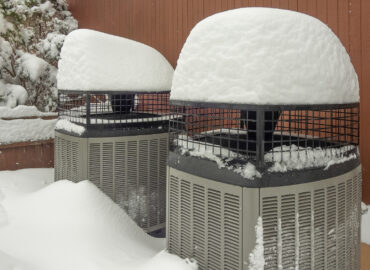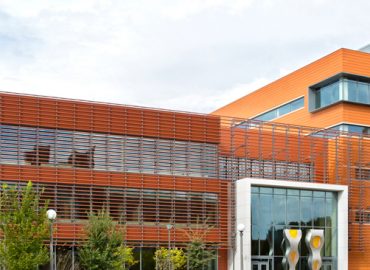The energy efficiency sector is one of the fastest growing job sectors in Illinois and nationwide. Energy efficiency businesses were projected to experience higher job growth than any other energy sector in 2019, as shown in the table below, with data from NASEO and EFI’s 2019 U.S. Energy and Employment Report.
According to the Energy Efficiency Jobs in America Report, energy efficiency jobs deliver goods and services that lower energy use by improving technologies, appliances, buildings, and energy systems. A majority of Illinois energy efficiency jobs are in the HVAC sector, and almost half of energy efficiency businesses are in the construction and repairs industry, as shown in the figures below. Nearly half of Illinois energy efficiency businesses employ 1-5 workers.
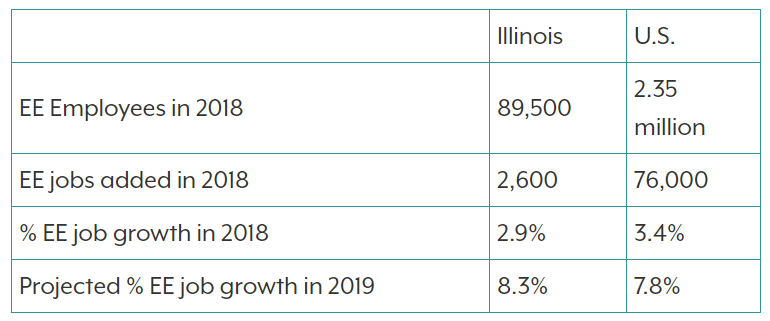
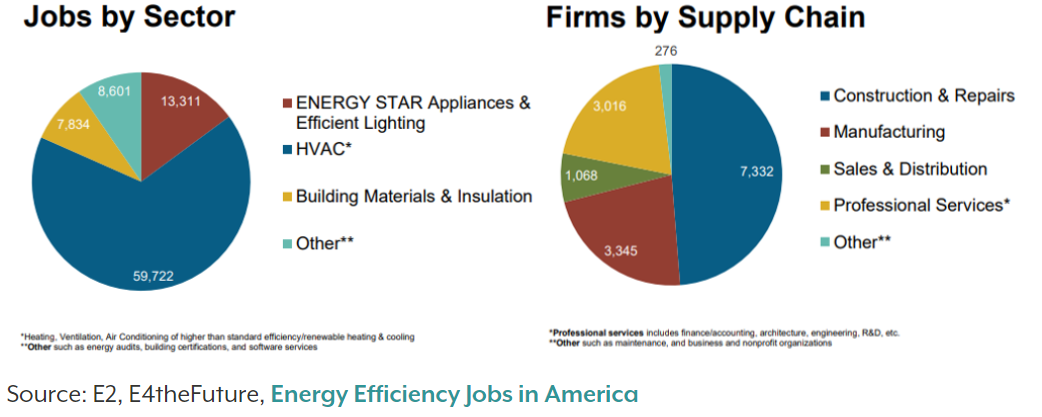
Not surprisingly, the majority of energy efficiency jobs in Illinois are in the Chicago metropolitan area, with approximately 63,000 workers. Energy efficiency workers can be found in other areas as well: St. Louis--Illinois side (4,500), Peoria (2,700), and Rockford (2,300).
Skilled labor with living wages
According to a 2019 Brookings Institute Clean Energy Jobs Report, energy efficiency workers typically have higher and more equitable wages, compared to other workers. Energy efficiency workers made $25.90 per hour on average, exceeding the national hourly average of $23.87. Energy efficiency workers at the lower end of the income spectrum also had significantly higher earnings. While workers in the 10th percentile across the entire economy earned just $9.27 per hour, energy efficiency workers in the 10th percentile earned $15 per hour.
Even though energy efficiency jobs have higher than average pay, they typically have lower than average formal education requirements. Roughly 55% of energy efficiency jobs require employees to have a high school diploma or less compared to 23% nationwide, according to the Clean Energy Jobs Report. 30% of energy efficiency jobs require some college or an associate degree, and 15% require a bachelor's degree or more.
Although the majority of energy efficiency jobs do not require a significant amount of formal education, they do require knowledge in building and construction, mechanics, design, mathematics, engineering, and technology. Energy efficiency jobs typically require skills related to installation, repair, troubleshooting, and quality control analysis. Workers must learn to use machines and technological systems and know how to manage financial resources. Soft skills, such as time management, goal setting, communication, and collaboration, are also very important in energy efficiency jobs.
Hiring difficulties
Employers in the energy efficiency sector nationwide report hiring difficulties, as shown in the figure below. Training programs are failing to generate an adequate pipeline of qualified employees. In all energy efficiency industries, the majority of employers reported that it was very difficult or somewhat difficult to hire employees.
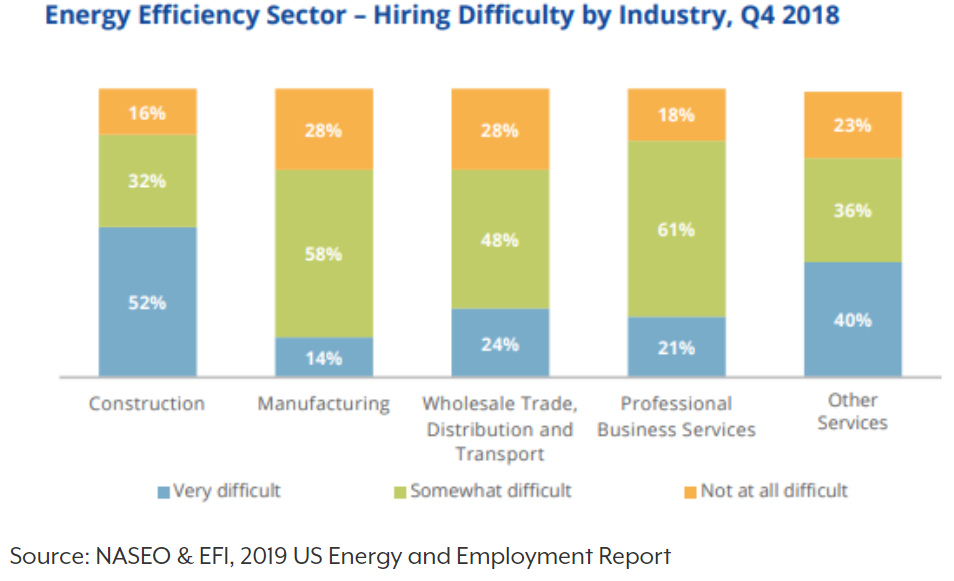
Energy efficiency employers in Illinois reported even greater hiring difficulties. In Illinois, 31.6% of employers found it very difficult to hire people for energy efficiency jobs, compared to 21.3% nationwide, and 63.2% said it was somewhat difficult, compared to 48.1% nationwide. In total, 95% of Illinois employers found it somewhat or very difficult to hire people for energy efficiency jobs.
Stay tuned for future installments of our Growing the Energy Efficiency Workforce Series to explore the challenges and learn best practices.




